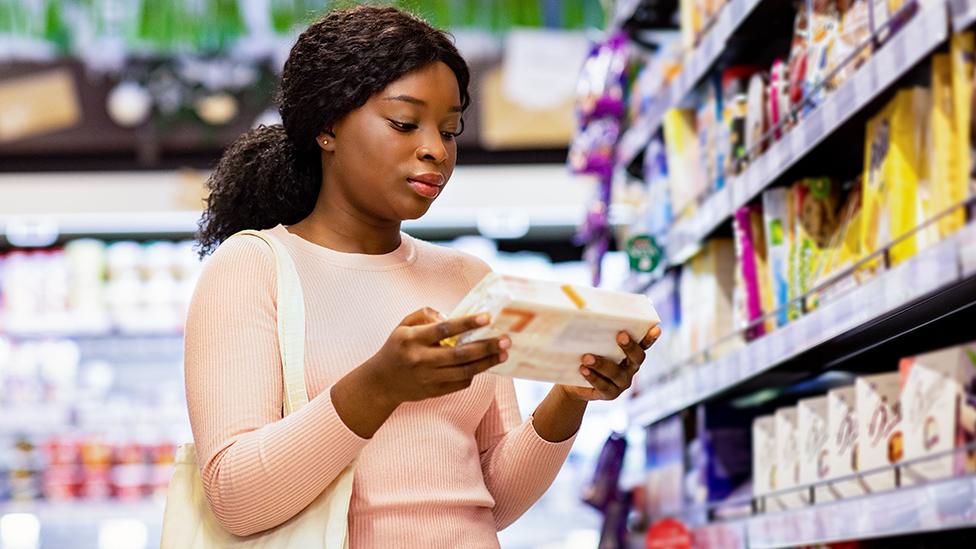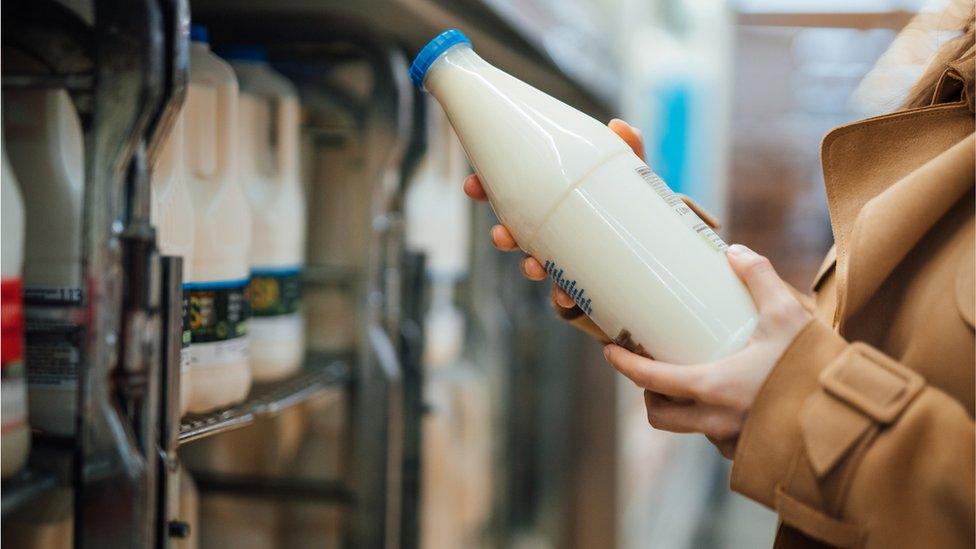Food price rises slow to lowest in more than a year
- Published
- comments

The rate at which food prices are rising has fallen below 10% for the first time in more than a year, according to new data.
Research firm Kantar says prices across supermarkets were 9.7% higher in the four weeks to the end of October, compared to a year before.
It is the slowest rise since last July.
An easing in food prices has emerged as shops prepare for a "fight for shoppers' Christmas spend", Kantar said.
Rising food prices have been a major driver behind the higher cost of living in the UK.
It has meant that supermarkets have had to battle it out for customer visits and traditional spending habits are being "thrown out of the window", Kantar said, as many have started shopping around or visiting discount retailers in order to save money.
Although lower food price inflation might ease some of the extra pressure households have been under, it does not necessarily mean that goods will be cheaper - just that prices are not rising as fast.
'Milestone'
Fraser McKevitt, head of retail and consumer insight at Kantar, said grocery price inflation dropping into single digits marked a "big milestone for the British public and retailers".
The figure for the end of October marks a fall from 11% the month before and the first time it has been below 10% since July 2022.
But he said that while the drop was "positive news and something of a watershed, consumers will still be feeling the pinch".
Mr McKevitt said the research group was only seeing year-on-year price falls in a limited number of areas, which included butter, dried pasta and milk.
This is supported by recent findings by the British Retail Consortium (BRC) industry group and the Office for National Statistics as well.
Last month, the BRC said fierce competition between supermarkets had led to some food prices dropping, something which Kantar also noted.
Mr McKevitt said retailers were looking at ways of "softening the blow for shoppers", which had led to some "upping the ante on promotions".
"Every single one of the grocers increased the proportion of sales through deals versus last year which is something that has only happened on one other occasion in nearly 10 years," he said, adding there had been a "big gear shift" in consumers' spending on promotions.
Sue Davies, head of food policy at Which?, said that while inflation slowing was a good thing, supermarket prices were still much higher than a year ago.
"Millions of people are still really struggling to put food on the table - a reality that is likely to be especially bleak for the most hard-up households as we edge towards Christmas," she said.
She called on supermarkets to help lower-income households by offering their budget range essentials in convenience stores in the run-up to Christmas, as items in these shops are often more expensive.
Meanwhile, discounters have been drawing in thousands of extra customers as families look to get the most out of their budgets.
Kantar said that Lidl was the fastest-growing retailer in October, with sales over the last quarter up by 14.7%.
It also suggested that the typical customer walking through the doors of some discount chains had also changed due to the higher cost of living, with more affluent shoppers making up 54% of Aldi and Lidl's sales.
Related topics
- Published18 October 2023

